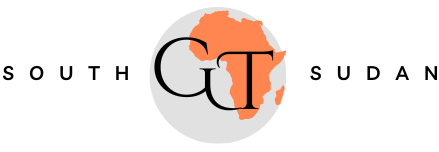Report details trafficking in gold, antiquities, and human beings during and after “catastrophic” conflict
Tuesday, 1 July 2025
The Sentry has found evidence indicating that the Eritrean Defense Forces (EDF) engaged in and orchestrated industrial-scale looting operations during and after the war in Tigray. The trafficking of gold, antiquities, and human beings occurred alongside gang rape, torture, kidnapping, and mutilation.
The new investigative report, “Power and Plunder: The Eritrean Defense Forces Intervention in Tigray,” warns that since the conflict—which took place between 2020 and 2022—the EDF have pursued new cross-border illicit financial activities, increasing the risk of a return to war.
Charles Cater, Director of investigations at The Sentry, said: “During their intervention in the Tigray conflict from 2020 to 2022, the Eritrean Defense Forces were responsible at the highest levels for systematic looting and cross-border war profiteering amid a campaign of extreme brutality. Not only did this come at a catastrophic human and economic cost for the people of Tigray, but a lack of accountability has also exacerbated the risk of renewed conflict.”
John Prendergast, Co-Founder of The Sentry, said: “Tigray is on the precipice of another—preventable—armed conflict, which could once again involve wider military intervention by the Eritrean Defense Forces. Urgent action is required by international actors—including the UN Security Council and key states with influence in the region—to prevent a resumption of conflict. Mediation should be complemented with the threat and imposition of targeted network sanctions on those responsible for escalating the crisis and those who have profited from it.”
Selected report excerpts:
Evidence detailed in the report indicates that Eritrea’s leaders played an active role in planning the war, anticipating the outbreak months before the first shots were fired and working with and through Ethiopia under its new and inexperienced prime minister to punish Tigray and the Tigray People’s Liberation Front (TPLF).
Eritrea’s role in undermining regional peace and security led to the initial imposition of UN sanctions in 2009. Today, with sanctions lifted, Eritrea is rebuilding its military, bolstering its defenses, and continuing to destabilize its neighbors.
The conflict in Tigray was marked by extraordinary violence. The scale and nature of the atrocities committed throughout the conflict, together with the rhetoric employed by a range of actors, have led many to conclude that the conflict amounted to ethnic cleansing, even genocide.
The scale of the looting and economic destruction wrought on northern Tigray by the Eritrean Defense Forces (EDF), particularly in late 2020 and early 2021, was unprecedented. Following extensive planning prior to the incursion into Tigray, the looting was organized and calculated both to extract as much wealth as possible and to cause maximal punitive damage to the economy to leave a lasting legacy.
By 2024, the situation in Tigray had changed irrevocably. With parts of Tigray still under the control of the EDF, including multiple areas officially licensed for exploration by the federal government’s Ministry of Mining in 2023 and 2024, competition over gold had grown increasingly complex and violent. According to the Tigray Land and Mining Bureau, an estimated $75-80 million worth of gold was being produced and diverted to the black market annually.
A UK-based online auction house, TimeLine Auctions, has recorded an “eye-popping” surge of sales in Ethiopian artifacts from late 2020 onwards, often with very scant information given for the items’ provenance.
Key recommendations detailed in the report:
As a matter of urgent conflict prevention, the United States, European Union, United Kingdom, and other like-minded jurisdictions need to send a clear message to the Ethiopian government, the Eritrean government, the Tigrayan People’s Liberation Front (TPLF), and the Tigray Interim Administration (TIA) that they will face an escalated international response and sanctions if there is a resumption of conflict.
The US, the EU, and the UK should consider designating for sanctions Eritrean Defense Forces Brigadier General Eyob Fessehaye (aka Halibay), Brig. Gen. Simon Oqbu (aka Riesi Mirak), and Maj. Gen. Romadan Osman Awliya for their responsibility for human rights violations in Tigray.
The UN Security Council should determine that Ethiopia-Eritrea border issues—including unimplemented components of the November 2, 2022, Pretoria peace agreement—constitute a threat to international peace and security, and it should thus establish a panel of enquiry with a Chapter VII mandate to monitor and report on the situation.




